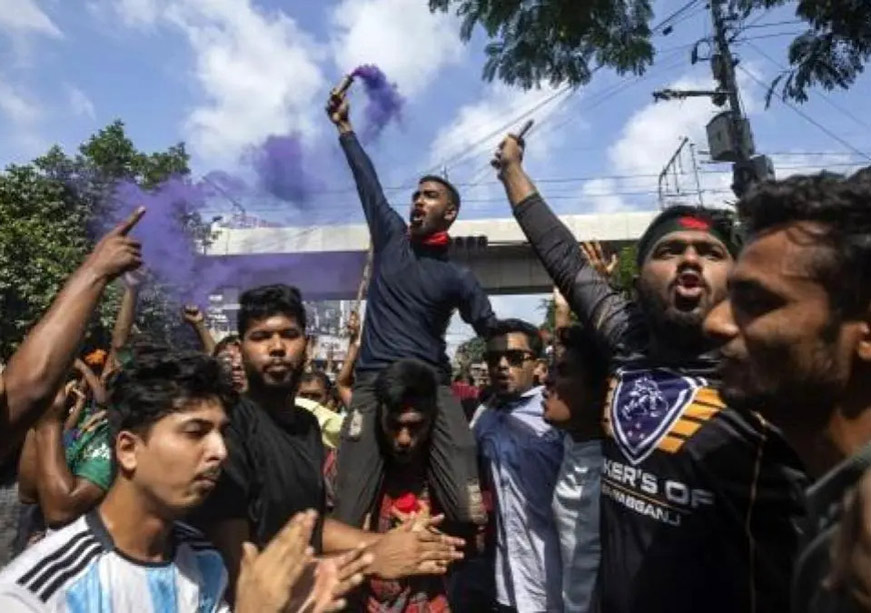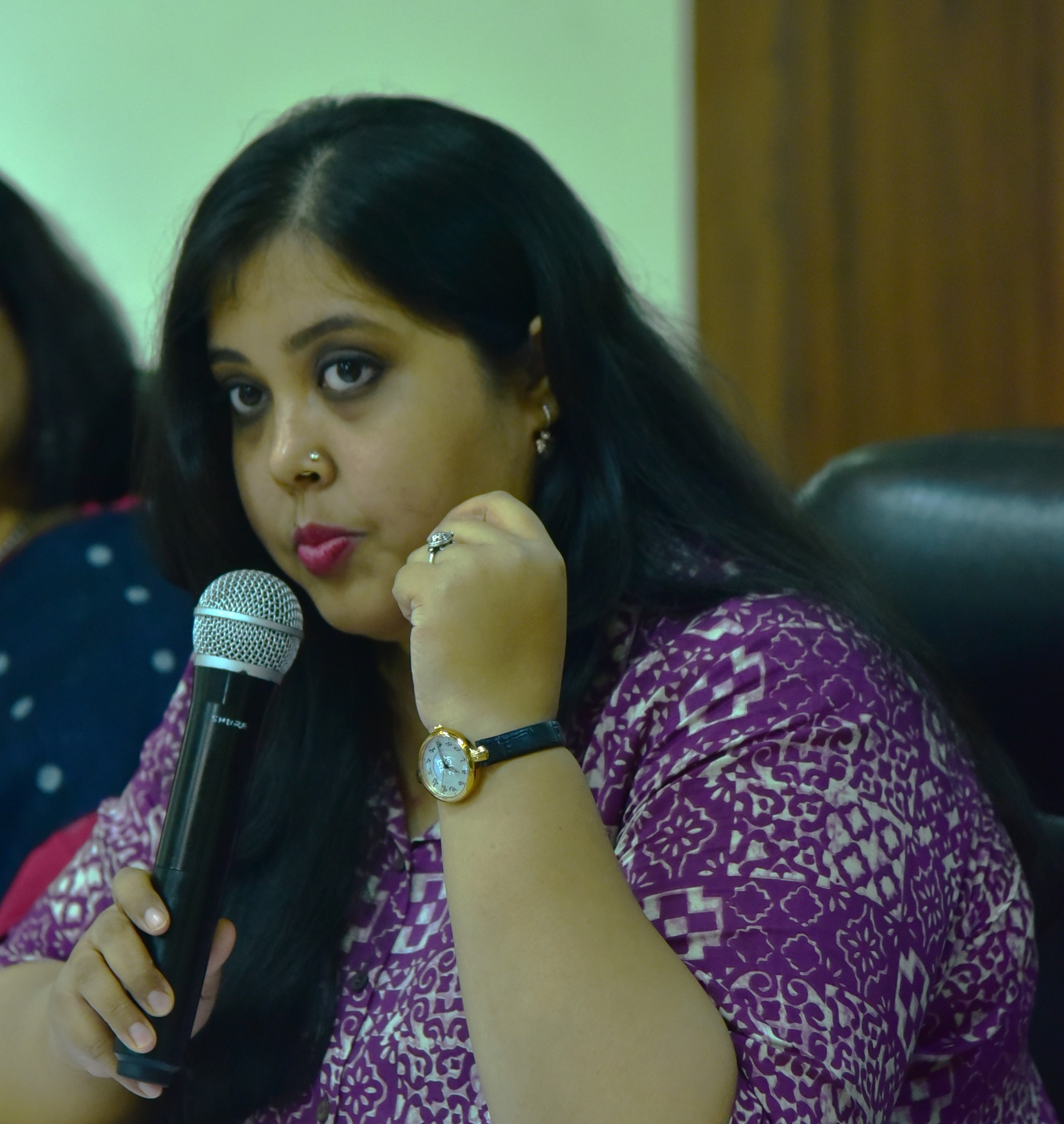-
CENTRES
Progammes & Centres
Location
India must persist as future of South Asia is embedded in a firm Delhi-Dhaka engagement.

Bangladesh stands at a historic crossroads. Sheikh Hasina, serving her fifth term as Prime Minister, resigned and left the country amidst mass unrest, and an intermittent military government has taken control. The country’s future is in turmoil as the parliament has been besieged, the official residence of the former Prime Minister vandalised, her office burnt along with the Bangabhaban, and a statue of her father, who ironically is hailed as the Father of the Nation Bangabandhu Sheikh Mujibur Rahman, has been defaced. As anarchic tendencies reign in the power vacuum left behind by a Prime Minister who ruled with an iron fist for 15 years, the situation is tense and bears important implications for India. In the past decade, New Delhi and Dhaka have been each other’s strongest ally in South Asia, unfurling pages of a “golden chapter” in their bilateral ties. However, as the current crisis unfolds, the dynamics of this relationship face unprecedented uncertainty.
In July, the Supreme Court of Bangladesh reinstated a highly contentious quota for top government jobs, reserved exclusively for descendants of freedom fighters who fought in the 1971 liberation war. This decision ignited a firestorm of protests across the country, led by students demanding a significant reduction in the quota, as they face a daunting job market with millions unemployed post-pandemic, and rampant inflation exacerbated by the Russia-Ukraine war. The situation escalated when clashes erupted at Dhaka University between protestors and the Bangladesh Chhatra League, the student wing of the ruling Awami League, due to a controversial comment from the former PM who questioned the legitimacy of protestors’ demands, asking, “If jobs aren’t reserved for freedom fighters, then who should they be reserved for? Children of razakars?” “Razakars,” an Urdu word meaning volunteers, is an offensive term in Bangladesh. It was used to refer to those who opposed the Bangladesh Liberation War of 1971 and were accused of atrocities.
The Supreme Court of Bangladesh reinstated a highly contentious quota for top government jobs, reserved exclusively for descendants of freedom fighters who fought in the 1971 liberation war.
The government’s attempts to quell the protests with the imposition of a nationwide curfew and an incremental use of force with the army given shoot-at-sight orders failed as violence erupted across the country, taking more than a hundred lives. The Supreme Court’s decision to reduce the quota from 30 to 5 per cent could not appease the protestors as their demands evolved into a comprehensive probe into the violence, accountability for the perpetrators, and a public apology from Hasina. The apolitical student protests transformed into a broader expression of public discontent against the Awami League government accused of controversial electoral victories and widespread corruption, ultimately toppling it.
The domestic disarray, however, stands in contrast to the foreign policy bonhomie that had fostered between India and Bangladesh during the Hasina years. Her long tenure had brought political stability to Bangladesh, contributing to regional security. Her government’s “zero tolerance” policy against insurgent groups operating from Bangladesh significantly helped India in managing its volatile Northeastern region. However, her sudden departure, amidst the resurgence of fundamentalist factions in Bangladesh, such as the Jamaat-e-Islami, poses new security challenges for India. New Delhi has therefore tightened security along its border with Bangladesh — the fifth longest international boundary in the world, and has declared a high alert to prevent a spillover of violence, as reports arrive of atrocities against Hindu minorities.
Bangladesh’s economic rise, propelled by political stability in Dhaka, had drawn substantial foreign investments, including from India, and positioned it as one of the “Asian Tigers”, a testament to its remarkable growth and development. However, the departure of Hasina has cast a shadow on India-Bangladesh development projects, which have been a cornerstone of bilateral relations in recent years. Connectivity initiatives aimed at deepening cooperation, such as enhancing maritime trade through Bangladesh’s Chattogram and Mongla seaports, rebuilding severed connectivity links, and expanding roads, rails, inland waterways, and air links, are now in jeopardy. As each other’s largest trading partners in South Asia, the success of these initiatives had been crucial but the current political upheaval raises concerns about the continuity of this development partnership. The opposition Bangladesh Nationalist Party, known for its anti-India stance and pro-China leanings, has endorsed recent anti-India campaigns, potentially disrupting the diplomatic balance maintained by the Hasina government between India and China. This shift could lead to a tilt towards Beijing, a scenario that India must navigate carefully to ensure the continued success of bilateral relations.
Connectivity initiatives aimed at deepening cooperation, such as enhancing maritime trade through Bangladesh’s Chattogram and Mongla seaports, rebuilding severed connectivity links, and expanding roads, rails, inland waterways, and air links, are now in jeopardy.
Hasina is at the Hindon Airbase near New Delhi as negotiations are ongoing for her political asylum in a hitherto undisclosed country. Her departure signifies the end of an era in the India-Bangladesh relationship, marked by unprecedented bonhomie and goodwill. Her proactive leadership has been crucial for the success of India’s “Neighbourhood First” and “Act East” policies which mark their tenth anniversary this year. However, it will be crucial for New Delhi to ensure that even as political power changes hands in Bangladesh, there continues to be amity and cooperation between the two nations. Geography dictates that India and Bangladesh are natural partners with shared borders, culture, and organic mutual dependence that transcend political power play. New Delhi will have a difficult road ahead to navigate but persist it must as the future of South Asia is embedded in a strong Delhi-Dhaka engagement.
This commentary originally appeared in Financial Express.
The views expressed above belong to the author(s). ORF research and analyses now available on Telegram! Click here to access our curated content — blogs, longforms and interviews.

Professor Harsh V. Pant is Vice President – Studies and Foreign Policy at Observer Research Foundation, New Delhi. He is a Professor of International Relations ...
Read More +
Sohini Bose is an Associate Fellow at Observer Research Foundation (ORF), Kolkata with the Strategic Studies Programme. Her area of research is India’s eastern maritime ...
Read More +